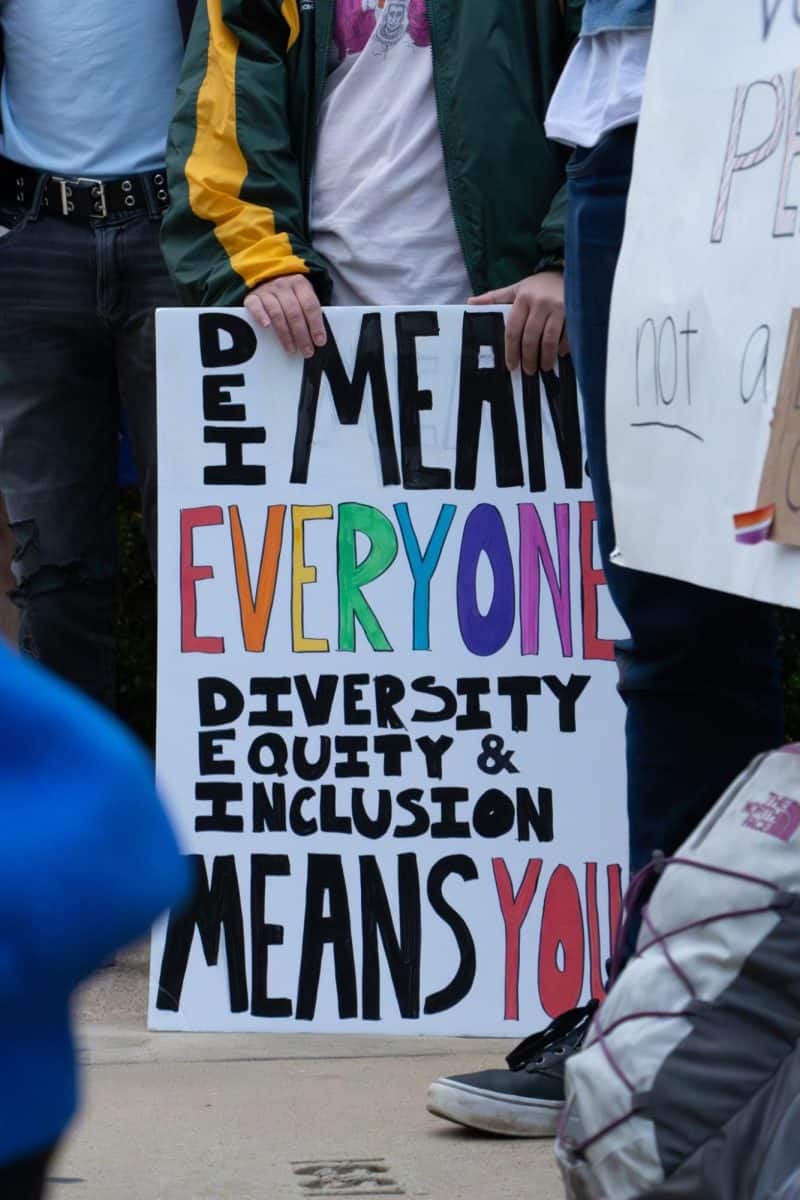The Crimson White editorial board consists of Editor-in-Chief Maven Navarro; Managing Editor Jacob Ritondo; Engagement Editor Rob Saville; Opinions Editor Abby Cope; and Chief Copy Editor Luke McClinton.
Louisiana’s new legislation requiring the “large, easily readable” display of the Ten Commandments in public classrooms from elementary to college has drawn prominent criticism from Christians and non-Christians alike.
Signed by Governor Jeff Landry on June 19, the new law is one unconstitutional step in a larger effort to cleanse schools of presumably anti-Christian and anti-American material. A recent cascade of book bans, DEI resistance, anti-LGBTQ+ laws and proposed sex education restrictions are united in an attempt to swing the pendulum back toward the so-called traditional ways America has long held to.
Louisiana is the first state to officially mandate the display of the Ten Commandments. Other Southern states, such as our own, may not be far behind.
Since the law was passed, Texas lieutenant governor Dan Patrick has pledged to pass an identical bill. Republican presidential nominee Donald Trump has likewise vocalized his support of the movement.
Perhaps most concerning for students and citizens in our state is that Alabama Republican Party Chairman John Wahl voiced his party’s support for such measures. He said in a statement emailed to The Crimson White that his party “supports religious liberty and would be in favor of such legislation during the next legislative session.”
If Alabama passed such a law now, it would be on-brand with the state’s current trend of waiting for other states to pass “anti-woke” legislation before passing similar legislation itself. This behavior can be seen as in the cases of the anti-DEI law and the Don’t Say Gay law.
These laws are attempts to bring the country back to its traditional ways. In reality, however, the so-called “traditions” being returned to are often romanticized takes on the past that selectively push present issues and identities out of view.
While some of the book-banning battle has been fought against explicit and graphic material, in many cases books have been scrutinized solely due to their authors’ sexuality or skin color. While DEI restrictions can sound acceptable on paper, they open the door for dangerous interpretive acts. Already-inconsistent sex education is facing proposed restrictions.
It is a cultural tug-of-war, and each action is being met with an equal or even more potent reaction. To counter acknowledged existence and inclusion in society for people of different religions, ethnicities and sexual orientations, many lawmakers are narrowing the scope of who can feel included in the social and judicial pillars of the country.
These pushbacks might be so blunt as to be called “Stop W.O.K.E.” They might be slightly less on the nose, like the proposed Alabama bill expanding a current ban on all discussion of sexual orientation and gender identity for teachers teaching up through the eighth grade. They might even attempt to reframe the pushback entirely, masking religious exclusivity with supposedly universal morals.
This idea of universality in the Ten Commandments has some merit, but it’s inconsistent.
Lawmakers are valid in claiming that “Thou shalt not kill” and “Thou shalt not commit adultery” are objective and universal moral claims. The problem is that such “universal statements” come just a few lines below narrowly Christian commands like “Thou shalt have no other Gods before me” and “Remember the sabbath day, to keep it holy.”
Landry said it himself: “If you want to respect the rule of law, you’ve got to respect the original lawgiver, which was Moses.” If you want to learn basic morals, you’ve got to learn that God — my God — commands them.
Dissenting viewpoints are being put to the side. Those of beliefs or identities not conforming to the increasingly narrow accepted norm face the threat of having their perspectives willingly ignored. Look no further than what Alabama lawmakers did with the massive pushback to the anti-DEI bill, when many of them refused to speak to protestors outside the state capitol.
It isn’t that lawmakers aren’t aware of different racial or social backgrounds, nor that they think Christianity is the only faith practiced in America. It’s that their chief aim is what one Alabama representative referred to as an attempt to “purify.” For culture war bills, it’s simply about creating homogeny to defeat the supposedly dangerous diversity.
The Ten Commandments law is the latest in a line of attempts to create a singular American identity in the midst of the country’s ever-evolving sense of self. The desire for replication in places like Texas and Alabama show that the anti-progressive answer is an exaggerated legislative return to the old.
There is nothing inherently wrong with the Ten Commandments; their required presence is the problem. The United States might have been inspired in thought by these Christian mandates, but it was first and foremost founded upon the liberty of decision. A step of loyalty toward religious roots beneath the surface would be a step of betrayal away from the freedom of choice we have celebrated for centuries.
Lawmakers should instead step toward preserving the tradition of a nation that served as a safe haven for religious refugees before its founding, not tarnish public schools by making them their sacrificial lamb upon the altar of imposed Christianity.













